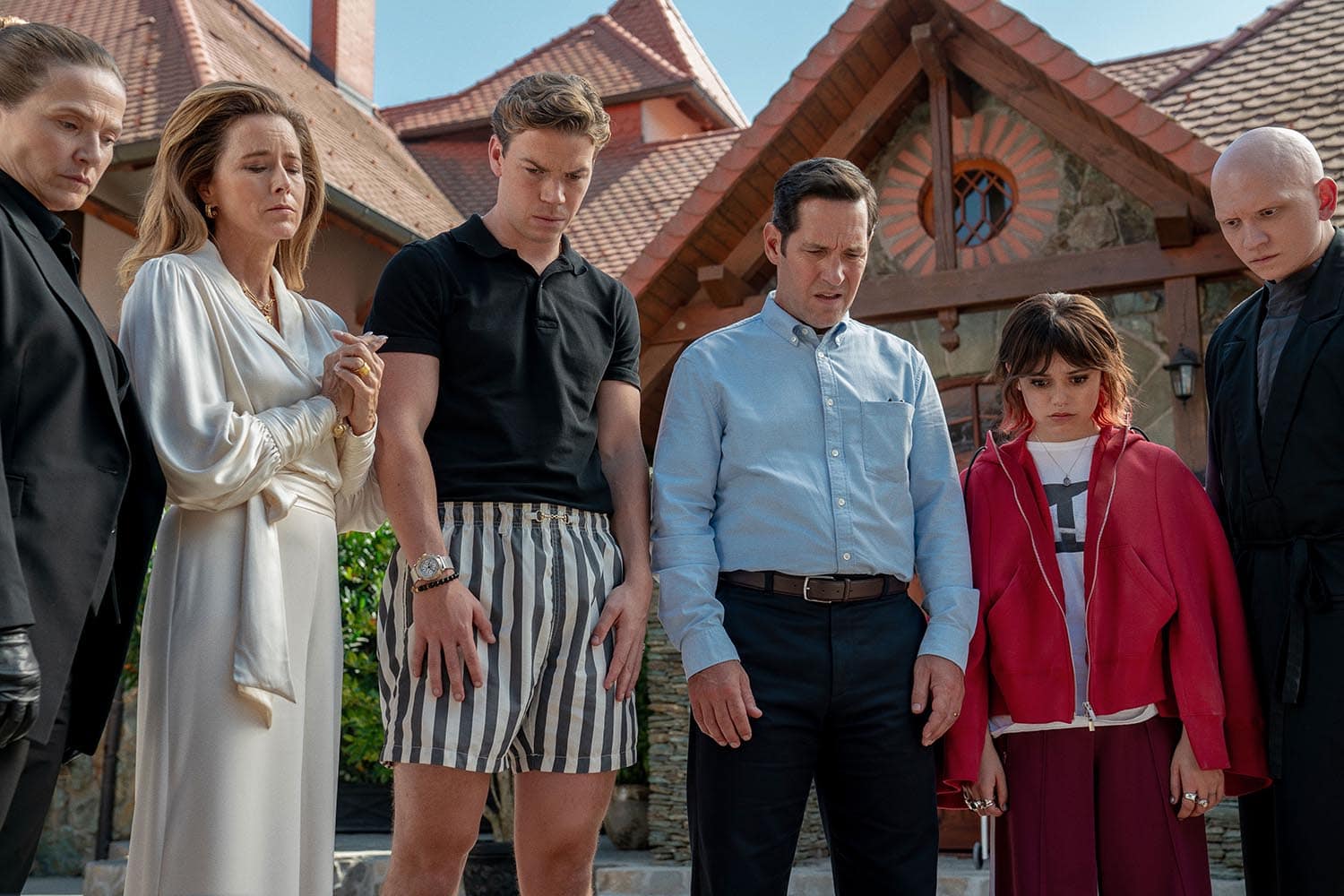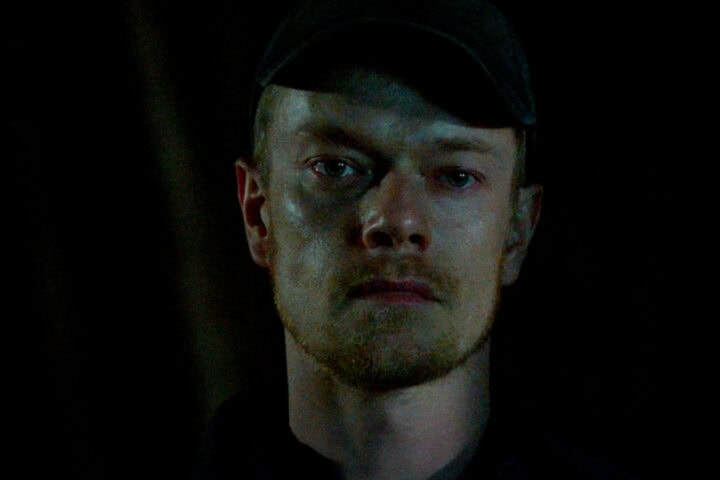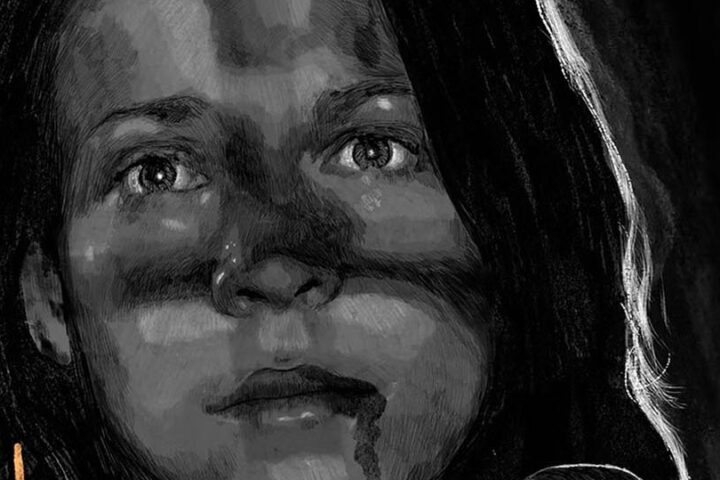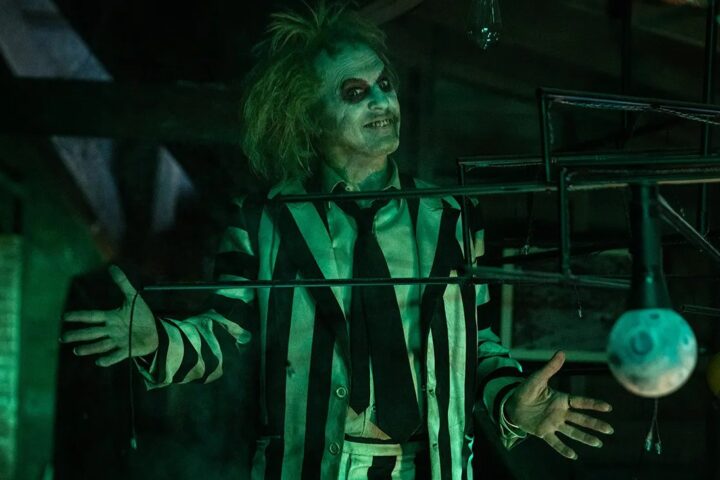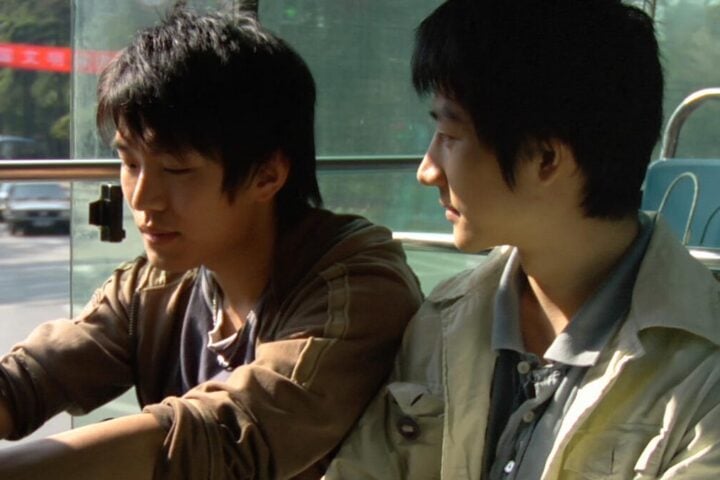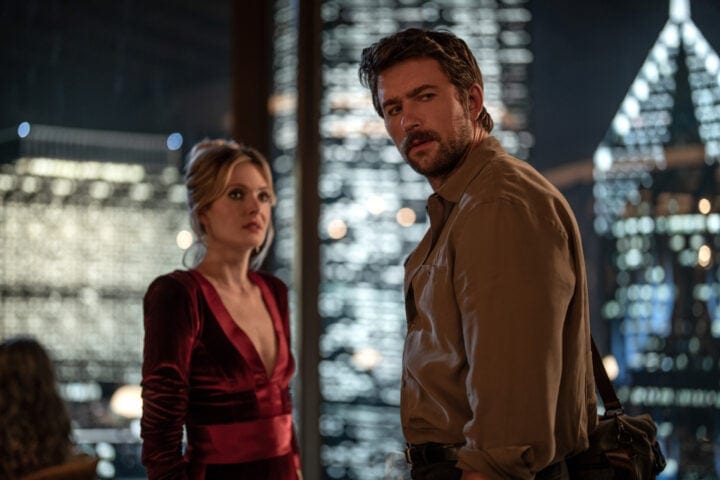Tear up your fuzzy blacklight posters and forget everything Lisa Frank ever taught you, because according to writer-director Alex Scharfman—and 15th-century tapestries, apparently—mythical cornigerous equines aren’t to be fucked with. Big, fanged, and possessing of a wicked vindictive streak, the titular horned beasties of Death of a Unicorn are fearsome, but Scharfman has bigger monsters to slay, including corporate greed and health inequity—hornless brutes that’ll still gore you in the ass without the slightest provocation.
Elliot Kitner (Paul Rudd), a lawyer for a pharmaceutical company, is having trouble relating to his college-age daughter, Ridley (Jenna Ortega), after the recent death of his wife from cancer. After Ridley joins her father on a business trip in an attempt to reconnect, the two hit a horse-like animal with a conspicuously prominent protuberance on its head while driving through the Canadian Rockies. Pressed for time, Elliot puts the poor thing out of its misery by caving in its skull, spattering himself and Ridley with its purple blood before loading it into the trunk of his car for fear of someone discovering that he killed some rare, protected species.
Upon arriving at the compound of dying pharmaceutical billionaire Odell Leopold (Richard E. Grant), the creature miraculously comes to. After realizing that its blood and glowing horn seem to treat everything from adult acne to cancer, the Leopold clan is soon champing at the bit to monetize the mystical cure-all, ignoring art history major Ridley’s warnings that the modern view of unicorns as kindly creatures is all wrong—a fact that’s proven dead right when two full-grown monstrosities come looking for the baby that Ridley and her father ran down.
Suggesting Rules of the Game cross-bred with a Spielberg creature feature, Death of a Unicorn taps into the anti-capitalist strain in late-20th-century monster movies from Alien to Jurassic Park by tracing a clever through line from the unicorns of antiquity to the present. By referencing Middle Ages art and even older lore, Scharfman plays with legends surrounding the coveted restorative properties of unicorn parts and later depictions of the legendary creature as an allegory for Jesus Christ in art, representing the wild, untouched purity of nature at odds with the feudal lords of modernity who want to commodify it—in this case, the Leopolds.
Inspired by the real-life Sackler family, the Leopolds couch their greed in the language of do-goodery while seeking to enrich themselves at the expense of those around them. As Belinda, Odell’s philanthropist wife, Téa Leoni is effortlessly chic in crisp white pantsuits, playing the character with a delicious glibness. She all but carries the film’s messaging on the mercenary insincerity of the philanthropic ruling class, but if there was any doubt as to what undergirds the family’s quest for pharmaceutical innovation, a scene-stealing Will Poulter, as Odell and Belinda’s coarse, affluenza-addled bonehead son, plays that class’s ugly but honest id.
The film, though, never lets its message get in the way of delivering unicorn carnage. The beasts themselves are a mix of practical and digital FX and are truly ferocious creations, and the filmmakers have a blast sticking them in classic creature-feature setups, evoking Xenomorphian shadows with their horse-y snouts and the Velociraptors of the Spielbergian cine-imagination across a series of cat-and-mouse games. Truly, watching Belinda fight for her life against a slathering unicorn can’t help but inspire a nostalgic twinge for anyone who fondly—or even not so fondly—remembers Leoni facing off against a hungry Spinosaurus in Jurassic Park III.
What good, though, is a monster movie without a dose of heart? Scharfman’s screenplay invests in satire over emotional beats, but Rudd and Ortega are a dynamic duo that prove to be Death of a Unicorn’s ace in the hole. The film’s transcendent, teary-eyed conclusion isn’t totally earned, but when you cast actors this good at turning wet tinder into emotional fireworks, it hardly matters. Death of a Unicorn may aim to demythologize everyone’s favorite mono-horned fantasy friend, but its belief in the magic of movies is palpable.
Since 2001, we've brought you uncompromising, candid takes on the world of film, music, television, video games, theater, and more. Independently owned and operated publications like Slant have been hit hard in recent years, but we’re committed to keeping our content free and accessible—meaning no paywalls or fees.
If you like what we do, please consider subscribing to our Patreon or making a donation.

